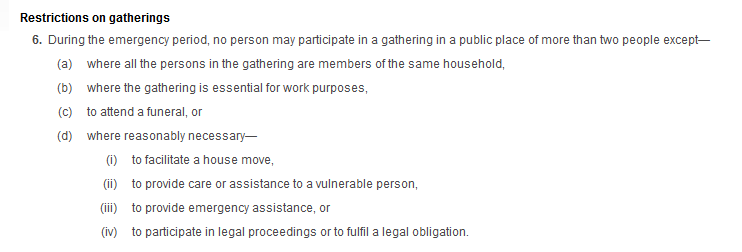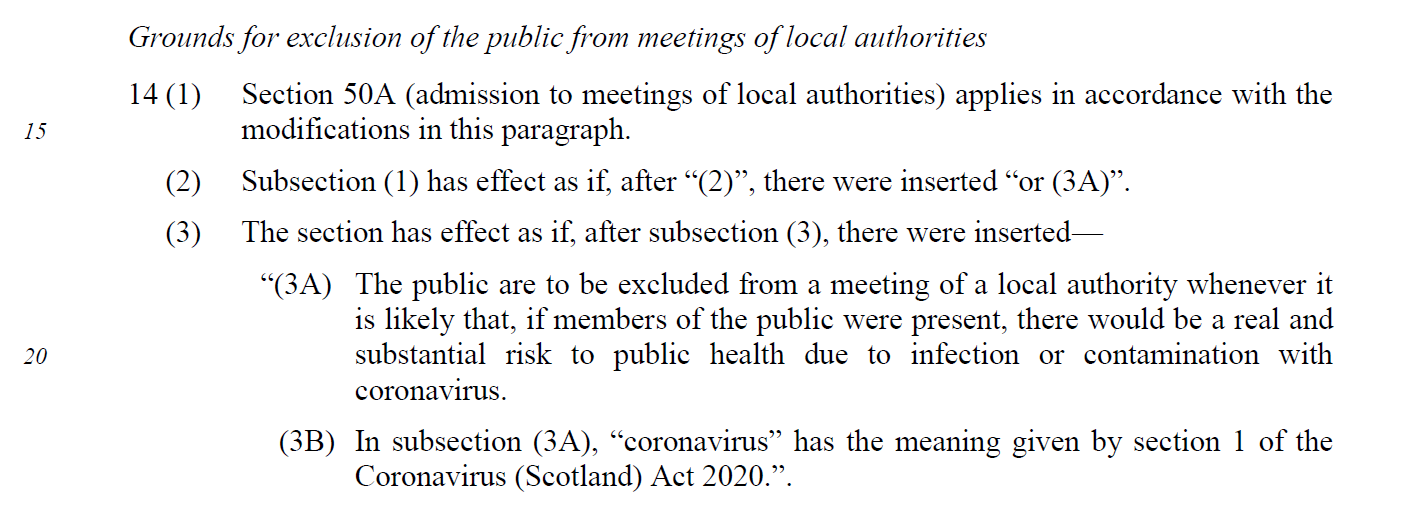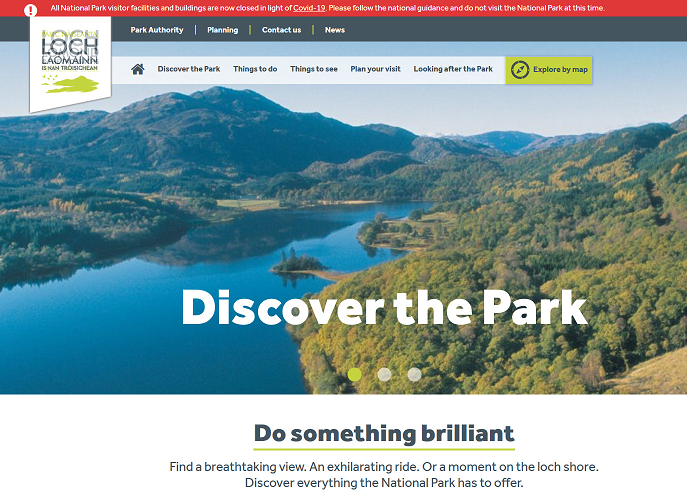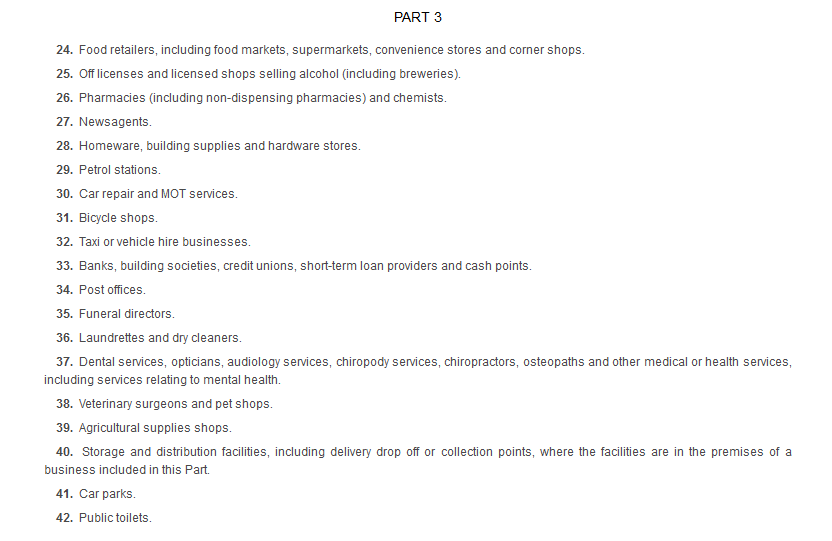 Last week, without anyone noticing, the Scottish Government followed the UK Government and used the Health Protection (Coronavirus) (Restrictions) (Scotland) Regulations to remove our right to protest. What the regulation means is that if health and social care staff or other workers walk out of their workplace to protest against the lack of personal protective equipment as some have been threatening to do, it would be illegal for them to hold an outdoor meeting or protest, even if they observed the social distancing rules.
Last week, without anyone noticing, the Scottish Government followed the UK Government and used the Health Protection (Coronavirus) (Restrictions) (Scotland) Regulations to remove our right to protest. What the regulation means is that if health and social care staff or other workers walk out of their workplace to protest against the lack of personal protective equipment as some have been threatening to do, it would be illegal for them to hold an outdoor meeting or protest, even if they observed the social distancing rules.
Yesterday, the Scottish Parliament stopped the Scottish Government from removing further rights and freedom through the Coronavirus (Scotland) Bill. The Scottish Government had wanted to remove trial by jury and effectively stop freedom of information requests by allowing Public Authorities to take months to respond (see here). It restores one faith in democracy.
Unfortunately, our MSPs had very little time to consider the proposals and, while there were a lot of good things in the Bill (suspension of evictions due to non-payment of rent), they seem to have missed the implications of a provision that means that means that Councils and other Public Authorities can now meet in secret:
While the heading and wording implies these provisions only apply to Councils, provisions about how other Public Authorities conduct their meetings, is also governed by the Local Government (Scotland) Act 1973. So what this new legal provision means is that its up to any public authority in Scotland now whether to take decisions in public or not. That is a drastic reduction in democratic accountability and was totally unnecessary. Many of Scotland’s Councils already webcast their meetings and this should have been an opportunity to force all of them to do so. Instead, the Scottish Government has taken the opportunity to let decision makers become even less accountable.
Further medical and public health evidence on the need for restrictions
Following my post yesterday (see here), I was pleased to read in the Guardian report this (see here) from a Cambridge University virologist:
“nobody can breathe the virus on you. Experiments have been done looking at that. But if you are passing too close and an individual coughs on you, then you do stand a chance of being infected.”
and, this from another doctor:
“if someone’s jogging past and they’re suddenly within two metres, you need to understand that it’s not life or death. Someone running past you is not going to pass on the virus. It’s more sustained contact than that.”
What this confirms is there is NO need to curtail people’s liberty to go outdoors, as long as social distancing rules are observed.
While the media today is belatedly in an uproar about the failure of our governments to test people, its important to understand that testing alone WON’T solve the problems. For a fantastic explanation read the editorial in the BMJ about the science behind contact testing and the need for devolved local controls (see here). The implications of the article is that its not a general curtailment of civil liberties that is going to get us out of this crisis. Couple that with the science about how the virus is passed on, and there is absolutely no need to impose general restrictions on people’s ability to go outdoors (except maybe in London where its very hard to observe social distancing rules).
The curtailment of civil liberties and our National Parks

Unfortunately, the Loch Lomond and Trossachs National Park Authority is telling people not to visit, even if like the good people of Balloch, Helensburgh, Portincaple or Doune, they live just across the boundary and its the sensible place to take exercise. This confirms that all the Loch Lomond and Trossachs National Park Authority’s policy documents about the importance of the Park for health and exercise are just meaningless waffle. They are just an adjunct of the Scottish Government. A National Park doing its job would be considering HOW it could enable people to take exercise safely, instead of trying to close it down, and in particular how it could use its enormous ranger service to disperse people through the countryside.
Both our National Park Authorities seem only too happy to justify the curtailment of our right to walk in the countryside by spreading false information:
“The risks of spreading the virus in the countryside are the same as in cities and towns.”
No they are not! The reasons for this are explained above and in my last post. First there is far far more space in the countryside, so the chances of people being coughed on are much less. Second, there are very few hard surfaces via which the virus could be transmitted by hand contact.
Regular readers won’t be surprised to learn that the LLTNPA has taken on itself to go way beyond even the government’s draconian rules:
“We have closed all of our visitor facilities, including car parks, public toilets, camping and motorhome sites and our Duncan Mills Memorial Slipway in Balloch. This is to discourage any further travel or overnight visits to the National Park.”
While the Coronavirus Restriction Regulations introduced last week did close down caravan sites and campsites, they didn’t shut down car parks and toilets. Indeed, both car parks and public toilets were included on the list of public facilities which were excluded from the lockdown:

However, the regulations also required people responsible for managing these services to do so responsibly and to implement social distancing measures:
 Keeping facilities open, even those essential for public health like toilets, appears to have been far too much trouble for the LLTNPA. Imagine the LLTNPA management deploying their ranger service to help people by ensuring car parks and public toilets did not get overcrowded? Its easier to shut everything rather than managing risks in a proportionate manner. Instead of setting an example to the rest of Scotland, the LLTNPA are doing the opposite.
Keeping facilities open, even those essential for public health like toilets, appears to have been far too much trouble for the LLTNPA. Imagine the LLTNPA management deploying their ranger service to help people by ensuring car parks and public toilets did not get overcrowded? Its easier to shut everything rather than managing risks in a proportionate manner. Instead of setting an example to the rest of Scotland, the LLTNPA are doing the opposite.
What needs to be done
While both the UK and Scottish governmens appear to be deaf while the numbers of deaths are increasing, if this crisis is not to end up in complete social and economic collapse, they need to help end the panic and to start to plan and implement measures that might help us get out of the crisis NOW.
By far the most important of those measures is contact tracing and testing, because without this the panic will continue and the pressure will be on politicians to increase the lockdown. If you agree with the BMJ article link here please send it to all the politicians who represent you, ask them to read it and to respond.
However, enabling people to get back into the countryside is also an important part of this. Walking in the countryside is basically a very safe activity which is good for us all in these difficult times. The only possible problem is where too many people are going to one place. Ranger Services should be the way this is managed. If our National Parks, which do still have rangers, could show how this could be done then I can’t see why a wise government wouldn’t pay for local councils to employ temporary rangers for use in popular visitor spots across Scotland. Instead the blunt arm of the police is being used. I am sure that some of the many people living in the countryside who have lost their jobs would be very grateful to be offered jobs as rangers.
Once both public health teams and ranger services were up and running, they could work together to help get tourism in the Highlands re-started. It’s that of course what is needed to save the rural economy, including the economy in our National Parks, from collapse
Meantime there is no need for either our governments or our National Parks to curtail further our civil liberties to go out and enjoy the countryside. If you agree, please contact your politicians and say so.
You really need to get over yourself…..
I lost a parent last week and your righteous twaddle if frankly offensive
Yours
Adam
Thank you for this post. I also feel there are some un-proven restrictions on our freedom of movement. Here in England there are landowners complaining about people walking on rights of way on their land. They want this stopped! People worry about gates and stiles but guidance on using these with care would be most helpful.
although it does add another level of control of transgressive behaviour- i.e. more ‘rules’ would need to be followed.
and given the difficulty of managing a ‘normal’ situation, would make things even trickier for staff.
and given the lack of protection for other ‘front line’ staff- supermarkets, hospitals,- what is likelihood park rangers would get protection?
so, agree in priciple, but not in practice.
Thanks for your comment. What the science says is the need for PPE is for people working closely with people who might have COVID. Rangers would not have any hands on contact with people and should not have any contact with hard surfaces, so should be able to do their job outdoors while observing 2m distance. Where there is a need for PPE is for people cleaning public toilets. They clearly need enough gloves to ensure these can be disposed of after each use and be trained like NHS staff on how to take these off safely and then wash their hands.
lots of ‘should’s’ in there: always indicates a difference between the idea and the reality.
‘hard surfaces’: signs, benches, rails, leaflets, dispensers, etc.
2m distance: Rangers might observe but visitors wont. And First Aid?
You ignore the reality:
https://www.thedailybeast.com/national-park-staff-revolts-over-coronavirus-says-shut-them-down?fbclid=IwAR0Nz3LUxq8-sL2LQoEKDIUbXiw0XR6QnITOHGcTjBRe6fY08vvmjCo0WCY
Hi Eric, I think this is feeding fear. You appear effectively to be treating the risk from hard surfaces in the countryside as similar to hospitals. They are very different and for two main reasons. First, its quite possible to go for walks in the countryside without touching any hard surfaces at all. Second, the risk of droplets landing on a hard surface are far far less because people instead of being concentrated, are generally dispersed. You average Cairngorm carpark has far fewer visitors than an average pub in Glasgow where everyone goes to the toilets, touches the taps etc etc. In terms of the virus, there is a rationale for shutting down cafes, theatres etc that does not apply to the countryside. There are of course a few visitor hotspots, the sort of places where there are lots of signs (though why anyone would touch these I can’t imagine), leaflet dispensers (well if there are risk just empty the dispenser), rails and benches. It should be possible to manage these risks given the will. Its worth noting here that there is lots of scientific evidence to show that viruses survive for a far shorter time in the sun so actually on sunny weekends the risks are even lower.
I will limit this to 3 points:
1′.it’s possible’- yes, but not certain, not even likely.
2. ‘why anyone would touch these’- many interpretive boards are designed to encourage folk to touch- maps, panoramas, etc.
3. again, more ‘should be’: brave of you to volunteer other people to take the risk….
In short, I dont think you have a very sound technical understanding of the situation. Nor much of a clue about actual -as opposed to ideal- human behaviour. BTW I would prefer an open discussion of this rather than the present ‘adversariial’ ping-pong ;).
Hi Eric, I would welcome a discussion and have sent you my phone so you can give me a ring. In response to your ad-hominen argument, I would be delighted to come up to the Cairngorms and act as a volunteer ranger in a car park or wherever else for as long as that is needed. I was a social worker for 30 years and my experience (and the evidence of lots of research) is that when treated with respect, people treat you with respect. So, as long as Rangers were able to offer helpful advice – and that means the government relaxing the draconian law (eg so people could go and sit down and enjoy the sun as well as go for exercise – I don’t think they would be putting themselves at risk by helping to manage numbers in visitor hotspots. I would be more than happy to demonstrate this by example. Unfortunately at present the Regulations make it a criminal offence for me to leave where I am living and the way government is talking this afternoon that is going to continue for weeks. Nick
Thanks for this post, Nick. I would like to take this opportunity to focus on one particular aspect of it – the question of web casting of meetings. Highland Council introduced web casting of all main body committee meetings and planning meetings many moons ago now. Our largest National Park, spread from the Angus Glens to Ballater Grantown and Laggan, with some difficult road links, very like Highland, has consistently resisted web casting of any of its meetings. The travel barrier always was a huge barrier to people attending. Now, it could be argued that to travel to such a meeting would be less than responsible. Maybe the Park board are concerned that members might say something that might land themselves in hot water? It does happen occasionally in council. But that folk learn to be measured in what they say is no bad thing. Get on with it! We, the public – those who live and work in the park and those furth of the area who care about our national assets, deserve to be able to see and hear what’s happening and what decisions are being made. It is not an expensive process, nor, as has been proven already, does it restrict meetings to one location necessarily, though I would admit some of the venues currently used would probably need to drop off the list if their internet upload speed was insufficient. But in the current situation, the regulations, coupled with that apparent head in the sand attitude to web casting are an affront to democracy.
Lack of Internet access is no excuse for web casting their meetings. Just record them and upload them to the council web site at a later date. it’s hardly rocket science. Where meetings are already broadcast, this happens already. Totally agree about the need – if increasing access to democracy wasn’t sufficient justification before, then Covid-19 restrictions now make it obvious that public bodies should be forced to do this. Accountability is a key enabler for democracy. I’ve heard no excuse (other than incompetence) for NOT doing this!
‘if their internet upload speed was insufficient’.
-and that communities still dont have decent Broadband is a bit disappointing….